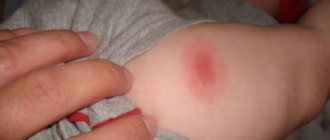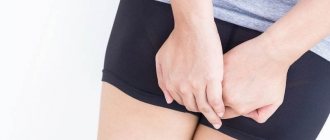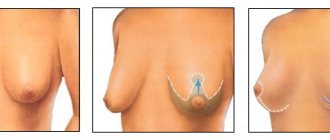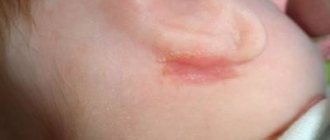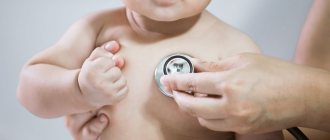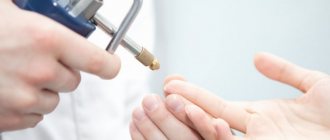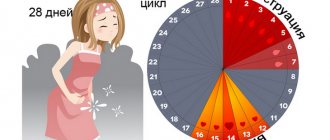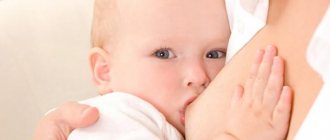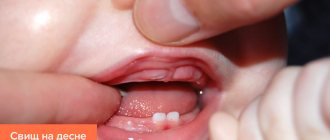Many women wonder whether the pain that occurs in the mammary glands after the end of the “critical days” is considered normal.
Mastalgia, which is the medical name for chest pain in women, can bother you for several days before the onset of “critical” days. Such pain may be a variant of the norm.
But what to do if the breasts are enlarged and hurt after menstruation, let’s look at it in more detail.
Content
- Causes of breast pain before and after menstruation
- Why do my breasts hurt before my period?
- Hormonal causes of chest pain during childbearing years
- Additional factors influencing pain sensations
- No menstruation, but my chest hurts
- Why do my breasts hurt after my period?
- Ways to eliminate chest pain during and after menstruation
Chest pain is a sensation familiar to almost all women. Both young girls and older women are often concerned about the question of why their breasts hurt after menstruation or before it.
Where to go if your breasts are swollen?
If swollen breasts cause physical or psychological discomfort, consultation with a mammologist and an ultrasound of the mammary glands will help determine the cause and find a solution to the problem.
When looking for a suitable clinic, you will find the “Your Doctor” service useful, which provides its visitors with information about private medical clinics. Here you can not only get the necessary information, but also make an appointment with the selected specialist.
This article is posted for educational purposes only and does not constitute scientific material or professional medical advice.
Why do my breasts hurt before my period?
Breast development in girls occurs between the ages of 11 and 14 years. Under the influence of changes in the level of estrogen hormones in the blood plasma, the gradual growth of parenchymal and stromal tissues begins, from which the mammary glands are formed. Breasts will be fully formed around the age of 21. It should be noted that in about 90% of girls and women, as a rule, the mammary glands have an asymmetrical shape; they usually differ slightly in volume, size and location. The left gland is usually slightly larger than the right.
But even after the breast has already fully formed, various changes occur in its tissues all the time, for example, during lactation, menstruation, pregnancy and childbirth. These processes are carried out under the influence of female hormones, the content of which in the blood determines the general condition of the body. Therefore, we can conclude: if the chest hurts slightly before the onset of menstruation, this is not a deviation from the norm.
You must listen carefully to your feelings. If you notice that your breasts have stopped hurting before your period, but previously you regularly experienced pain, then this may already indicate a developing pathological process.
In the second phase of the cycle, the breasts will become more sensitive. At the same time, proliferation occurs - a process when the amount of epithelium increases in the ducts and lobules of the mammary glands. Due to the fact that more blood begins to flow to the breast, it swells a little and increases in size. As a result, the girl may experience discomfort (pain, sensitivity, increased breast density). According to experts, these symptoms are mild if the woman is healthy.
Causes of breast swelling in women
“The breasts are full” - this is what women who are faced with swelling of the mammary glands most often say. In medicine, this condition is called mastodynia. But these definitions mean the same thing - a pronounced enlargement of the mammary glands, which may be accompanied by soreness and increased sensitivity.
There are several mechanisms for such breast enlargement. It could simply be fluid retention or an increase in fatty tissue. But most often the cause of swelling of the mammary glands is an increase in glandular tissue under the influence of female sex hormones. The breast is a hormone-dependent organ; its size and condition significantly depend on their number and ratio.
If we talk about the causes of swelling of the mammary glands, the most common factors are:
- Second phase of the menstrual cycle. The breasts fill up after ovulation, and the peak of the process occurs in the period immediately before menstruation.
- Pregnancy. Already at the beginning of a delay in menstruation, many women notice swelling and tenderness of the mammary glands, but this symptom does not necessarily accompany pregnancy.
- Taking hormonal drugs. Medications containing sex hormones, including oral contraceptives, often lead to painful breast enlargement.
- Diseases of the mammary glands. Mastitis, mastopathy and breast cancer in some cases lead to their swelling.
But these diseases should be accompanied by other signs:
- the appearance of formations in the gland tissue,
- the presence of changed areas of skin or pain.
Thus, the reasons for breast enlargement are quite varied and can vary widely.
Hormonal causes of chest pain during childbearing years
During menstruation, women of childbearing age also experience growth in body tissue due to cell proliferation. The breasts become slightly enlarged due to the fact that the glandular tissue grows before menstruation. This is considered a normal phenomenon that almost all women experience, including pregnant women. The glandular tissue, when fertilization does not occur, atrophies and at the same time as menstruation ends, all painful sensations will disappear.
At the same time, during the entire menstrual cycle in our body, the ratio between adipose, fibrous and glandular tissues may change. And progesterone (the female hormone) is to blame for such changes, which causes the glandular tissue to grow in the second phase of the cycle. The mammary glands harden a little, swell, and become more sensitive, but, as a rule, severe pain should not be observed. Typically, women begin to experience pain about a week before their period; some feel discomfort and swelling two weeks later.
Breast pain, your period is a week away? This is considered normal, but if you have pain for a longer period of time, consult a doctor.
Prevention of chest pain
To avoid pain, it is important to follow simple preventive measures. It is advisable to follow the rules both during menstrual periods and throughout the entire menstrual cycle.
Every woman deserves:
- Select high-quality, comfortable underwear with the appropriate cup size and shape.
- Get rid of habits such as smoking, alcoholism and regular fast food eating.
- Avoid exposure to low and high temperatures.
- Monitor the vitamin balance in the body.
- Avoid casual sex.
- When your period is over or you are stressed, take a warm bath and take a soothing herbal tea.
- Balance your diet, reduce the consumption of salty, fatty, sour foods and foods with spices, increase the amount of fresh vegetables and fruits in your diet.
- Before your period begins, reduce the amount of chocolate and caffeine you consume.
- Visit a mammologist and gynecologist regularly.
If after menstruation the mammary glands and lower abdomen or lower back hurt, and preventive measures are powerless, you need to seek help from a gynecologist. The doctor will determine the cause of the swelling and, as a result, prescribe the appropriate treatment. Ignoring a persistent symptom is dangerous to your health.
Additional factors influencing pain sensations
In addition to the above factors, the reasons that provoke the appearance of discomfort in the chest can also be:
- hormonal imbalance. Various factors can cause this failure, but often this indicates the presence of some dangerous diseases;
- gynecological diseases. They always lead to an imbalance of hormones in the body, but often manifest themselves as pain in the chest area.
If you experience severe pain, be sure to see a doctor.
Development of pathologies
If a woman has severe breast pain after her period, it is important to undergo the necessary tests, since this often indicates the presence of pathology. Swelling can occur with the development of many diseases. Most often, breasts become full after menstruation due to mastopathy.
Mastopathy develops due to hormonal imbalance. It is important to treat the disease in a timely manner, since the disease can provoke the development of malignant tumors. With this disease, in addition to pain in the chest, a peculiar discharge from the nipples is also observed. Most often, mastopathy occurs in women from 18 to 40 years old.
No menstruation, but my chest hurts
Sometimes women notice that there are no periods, but their breasts hurt. Let's try to figure out why this happens:
- First of all, remember what you did recently: were you training at the gym, lifting some weights? You probably just strained your muscles and the pain will disappear in a day or two.
- Pregnancy. Moreover, we mean not only the presence of a normal pregnancy, but also an ectopic one.
- Mastopathy is the most common disease of the mammary glands, occurring in more than 70% of the fair sex on earth.
- Structural changes in the chest or various inflammatory processes that have arisen in the chest.
It should be noted that severe pain can also be caused by the most dangerous disease - breast cancer.
Nipple discharge
Discharge from the nipples can occur due to pathological abnormalities or during normal cyclic processes.
Experts say that discharge can only occur during pregnancy. In all other cases, it is worth finding out the reason. Discharge from the breast, except during the lactation period, may appear in the following situations :
- With strong sexual arousal during the period of stimulation of the areola area.
- A few drops of light liquid may come out if you press on the nipple before menstruation. At this point, a burning sensation may appear in the chest.
If the fluid released from the breast is not milk, then it is considered abnormal discharge. At the appointment, the mammologist is obliged to clarify the exact consistency and color of this discharge.
If, when squeezing the nipple, a thick, brown, slightly sticky liquid is released, or the discharge has a greenish tint, then ectasia of the milk ducts is considered a possible cause. It is observed in women during menopause.
If the discharge has a brown color, which ranges from light to dark, then this may indicate intraductal papilloma. She needs rapid diagnosis and treatment.
If purulent, scanty discharge from the mammary gland appears, which has an unpleasant odor and occurs during breastfeeding, this may be mastitis. In this case, only one mammary gland hurts. Her skin will be hot to the touch
Why do my breasts hurt after my period?
Unfortunately, it is difficult to definitively answer the question of why breasts hurt after menstruation. Painful and uncomfortable sensations in the chest - mastalgia - are not considered normal for a healthy woman if they are not tied to the menstrual cycle.
Discomfortable sensations appear due to the fact that fluid accumulates excessively in the breast tissue, causing various changes, including inflammation. Therefore, when your chest hurts after your period, this is a compelling argument for seeing a doctor.
Hormonal imbalance is one of the main reasons why breasts hurt after menstruation. Often the breasts hurt in the early stages of pregnancy, since during this period various hormonal changes begin in our body, and the breasts begin to grow.
Mastopathy is also the reason why breasts hurt after menstruation. Signs of the disease can be determined independently by palpating the mammary glands. These include: lumps in the breasts and the appearance of nipple discharge. The disease is most often diagnosed among women 30-40 years of age and can be quite successfully treated with hormonal drugs. But if this disease is left unattended, it can lead to surgical removal of the lump or the development of breast cancer.
Why do my breasts hurt after menstruation? Perhaps the reason is cancer. Especially if the pain is non-cyclical and either worsens or subsides. This kind of irregular pain cannot be ignored, since any tumors at the initial stage are much easier to cure.
Anatomical changes can cause non-cyclical pain in the chest area. The factors that cause them are various injuries, surgeries undergone by the woman, and cysts. In addition, these pain sensations can be caused by musculoskeletal diseases, pneumonia, osteochondrosis, etc.
Hormonal medications prescribed to combat infertility or prevent pregnancy may also be the reasons why breasts hurt after menstruation. Infrequently, pain may also occur when taking antidepressants.
An imbalance of fatty acids, according to doctors, may also be one of the many reasons why breasts hurt after menstruation. Since this disorder significantly increases the susceptibility of mammary gland cells to hormonal changes.
Chest pain combined with pain in the lower abdomen: what does this mean?
If a woman complains of pain in the chest, and at the same time she has pain in the lower abdomen, first of all you need to think about gynecological diseases. These include:
- Adnexitis, in which the uterine appendages become inflamed;
- Vulvitis, vulvovaginitis can be complicated by inflammation of the cervix and vagina with the formation of superficial ulcers;
- Cervicitis is an inflammatory process of the mucous membrane of the cervix caused by viruses;
- Endometriosis;
- Ovarian cysts, which, as they grow, disrupt blood flow and affect the nerve endings, stimulating them, which causes pain in the lower abdomen and a feeling of compression.
The lower abdomen can hurt not only with gynecological diseases, but also with a specific infectious disease - tuberculosis. The fallopian tubes and ovaries are most prone to tuberculosis. Manifests itself with varied clinical symptoms:
- the menstrual cycle is disrupted,
- The stomach “aches” and the lower back “pulls”, especially after menstruation,
- general malaise,
- increased fatigue,
- severe sweating at night,
- a woman notes that she has lost weight in a short period of time.
Ways to eliminate chest pain during and after menstruation
When pain appears after menstruation, there is a possibility that it may be caused by a serious illness, and it is impossible to ignore it. To find out why your breasts hurt after your period, make an appointment with a specialist. If pain recurs regularly, start keeping a diary, noting the moments when they occur. At your appointment, the doctor will definitely ask you about the location and intensity of the pain, the presence of any discharge from the nipples, etc. Try to answer all questions asked in great detail.
After the survey, as a rule, palpation (manual examination) of the glands is carried out and the condition of the axillary nodes is analyzed. If the examination reveals any hardening in the breast, an experienced and qualified doctor will prescribe an ultrasound or mammography to diagnose them.
When a cyst or any tumors are detected, surgical operations are often resorted to, which can be supplemented with chemotherapy. You can find out more about this from your doctor.
For the treatment of pain not associated with various diseases, the following recommendations exist:
- forget about bad habits - stop smoking and alcohol;
- avoid stressful situations, as they only aggravate the situation;
- do not get too cold;
- take a warm (not hot!) bath;
- Eat well and properly (do not eat spicy, fatty or sour foods, eat more vegetables and fruits);
- choose the right underwear.
If these recommendations do not help you, take a pain reliever (ibuprofen, danazol, bromocriptine, naproxen), but remember that your doctor must prescribe it.
How to conduct a self-examination of the mammary glands?
It is extremely important for every woman to perform a breast self-examination after her period, around days 7-11. This will help to identify fibrocystic mastopathy at the initial stage of development, breast cysts, and also detect tumor formations in the breast in the early stages.
Warning! This photo contains information not intended for viewing by persons under the age of 18!
The breast self-examination algorithm is as follows:
- Stand near the mirror and examine your breasts: you should look at the shape of the breasts, the color of the skin of the nipples, your arms should be lowered during the examination.
- Raise both hands behind your head and examine your chest while in this position. Determine if there is a change in the shape or size of one of the mammary glands, pay attention to the color of the skin.
- The right hand must be thrown behind the head. Then, with slow, smooth, massage circular movements, palpate the right mammary gland, paying special attention to compactions, swelling and thickening. The same steps should be repeated with the left breast.
- Using the thumb and index finger of one hand, apply gentle pressure to the base of the nipple and look for any discharge from the nipple. Do similar actions with both the left and right mammary glands.
- Take a supine position. Using circular movements, applying light pressure, you need to feel the breasts, starting from the edges of the mammary gland towards the nipples.
- Using light circular movements, you should palpate the left and right armpits, paying attention to the presence of enlarged lymph nodes. If any, you should consult a specialist.
You can ask your question to our author:
What to do?
In most cases, unpleasant painful sensations in the chest after menstrual periods arise as a result of hormonal disorders. The following recommendations from specialists will help alleviate your condition and prevent such disorders:
- avoid hypothermia;
- get enough sleep;
- use high-quality bras that fit;
- avoid stressful situations;
- eat right, be sure to include vegetables, fruits, fish and lean meat in your diet;
- drink at least 2 liters of liquid throughout the day;
- exclude from the menu during menstruation and a week after it fatty foods, spices, smoked foods, strong tea, coffee, alcoholic drinks;
- drink decoctions of lemon balm, thyme and chamomile (2 glasses a day) to reduce pain and swelling.
If the causes of chest pain a week after menstruation are pathological in nature, then the appropriate therapeutic course is prescribed by the doctor, based on the diagnosis.
